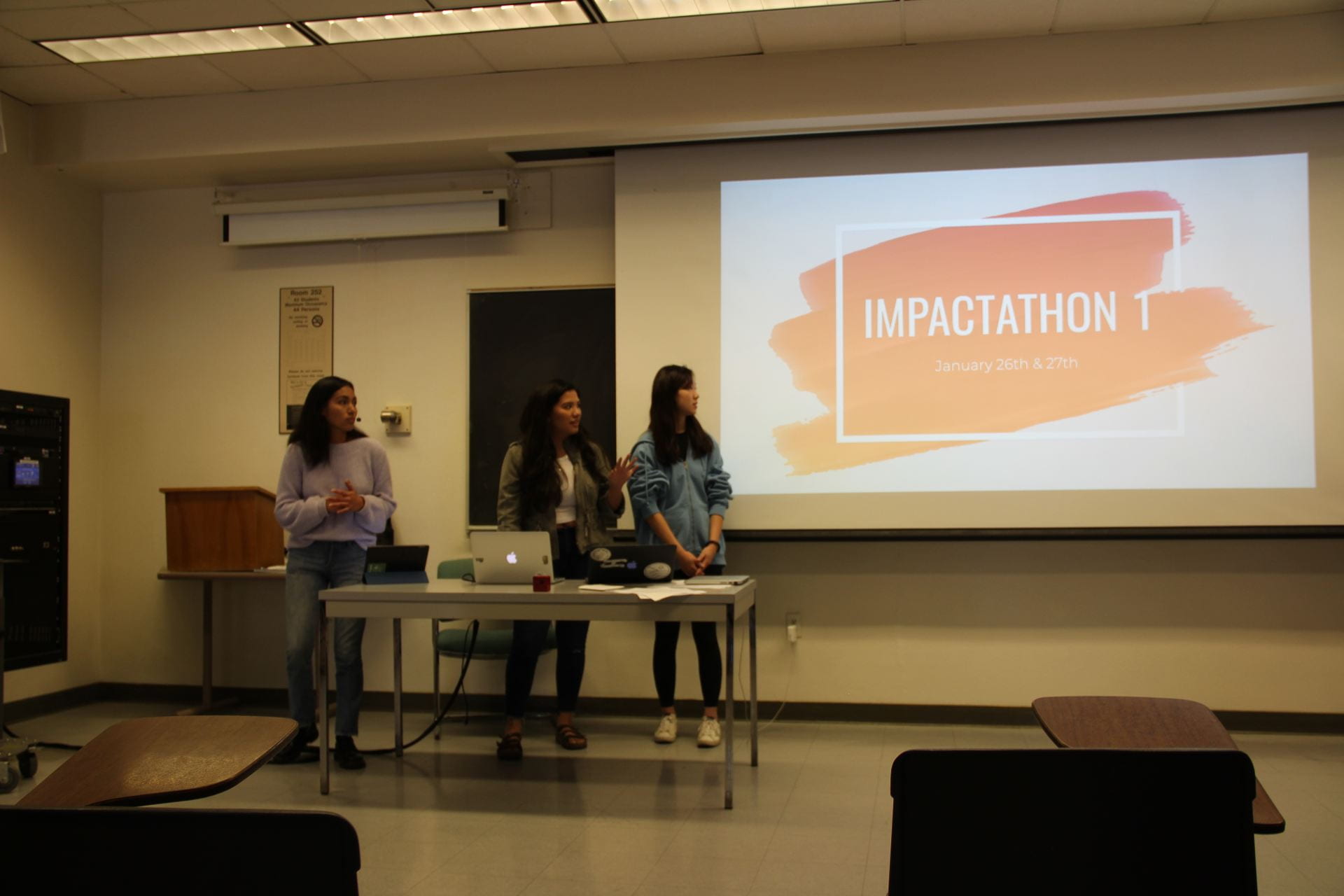How Everett Works

Hands on Tech
Students develop digital technology skills through peer-to-peer workshops and self-guided learning. Through collaborative hands-on projects and courses, students analyze the impacts of digital technology in order to better understand how to design their projects to leverage tech tools in a meaningful and sustainable way.
Hearts on Change
Our classrooms foster a strong sense of community among peers. As a student-led program, experienced students take on mentorship roles, guiding newer participants in developing leadership skills. Through this process, students gain a deeper understanding of their own positionalities and privileges while engaging thoughtfully with communities.
Heads on Justice
Students in the course sequence develop the capacity to understand complex social systems as the root causes of social issues. By partnering with an organization that zooms in on a specific area of the larger systemic issue, students develop the ability to analyze and evaluate the strengths and limitations of different social justice strategies. Students can put this knowledge into practice through the planning and implementation of their projects.
Sociology 30A is the first class in the Digital Justice course series and is an introduction to systems thinking, basic tech skills, and hearts on change leadership skills. Facilitated by a combination of lectures, group work, and student-led sections and workshops, students begin to engage in material based on the Everett Program trifecta; heads on justice, hands on tech, and hearts on change. Towards the end of the course, students can apply to continue to 107A to partner with one of the community organizations in our network in implementing a collaborative justice oriented project using digital technology.
In the second class in the Digital Justice series, students cultivate their capability to take action and strengthen their skills of self-initiated leadership, critical reflection, strategic thinking, tech skills, as well as various practical skills needed for designing impactful social projects with community partners. In this course students:
1. Develop an understanding of the systems involved in social justice issues and how to apply this to hands-on collaboration in developing a meaningful project that meets the needs of community members.
2. Understand the processes of developing a full project proposal, including planning, developing clear goals and objectives, project implementation plans, monitoring and evaluation systems, timelines, and budget.
3. Grow a partnership with a community organization and develop their own detailed proposal for a social justice project that utilizes digital technology in collaboration with that partner.
4. Gain confidence and motivation in digital technology-related problem-solving and self-learning, and learn to leverage digital technology tools to contribute to efforts of social justice.
Sociology 107B is the third course in the Digital Justice sequence and focuses on project management and implementation in solidarity and partnership with a community based or nonprofit organization. This course is designed to integrate the knowledge students have acquired in 30A and 107A, and provide structured lab time for them to implement their project with their partner organization in a way that advances social justice and sustainable development.
Specific learning objects include:
1. Practicing necessary skills for successful project implementation including project management skills, distance collaboration and communication skills, monitoring and evaluation skills, and so forth.
2. Engage in implementing impactful social change project in collaboration with a local or global community partner
3. Manage a project budget and track expenses
Sociology 196G is the last course in the Everett Program sequence. It is also the practicum requirement for the Digital Justice Studies minor and major concentration. In this course, students who have completed their Everett project implementation are invited to reflect on their experiences, articulate their findings and lessons, and share their messages with others. Students are expected to write and submit their Project Practicum paper, which is a version of the proposal that includes reflection on the project implementation process and outcome by the end of the course. Students also give a five minute presentation in December to a wider audience of school and general community members.
By the end of this course, students:
1. Understand deeper meanings of their project experience and its impact on personal growth, partner organization and broader social movements.
2. Thoughtfully reflect on their project experience through a collaborative practicum paper and presentation that concisely describes the process, outcomes, and lessons learned.
Digital Justice Studies
Learn about additional steps students must take in order to obtain a major concentration or minor in Digital Justice Studies (Formerly GISES).

